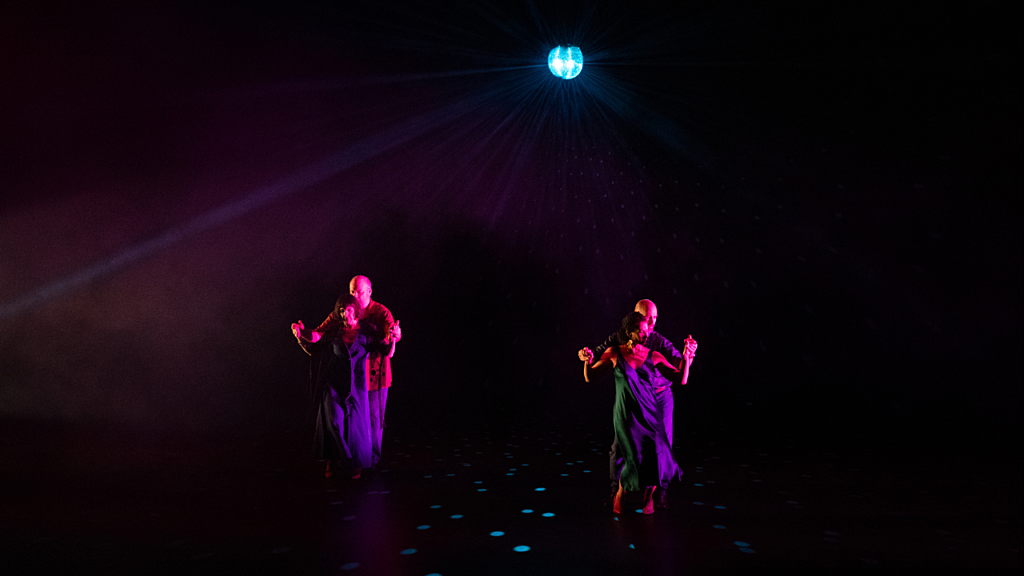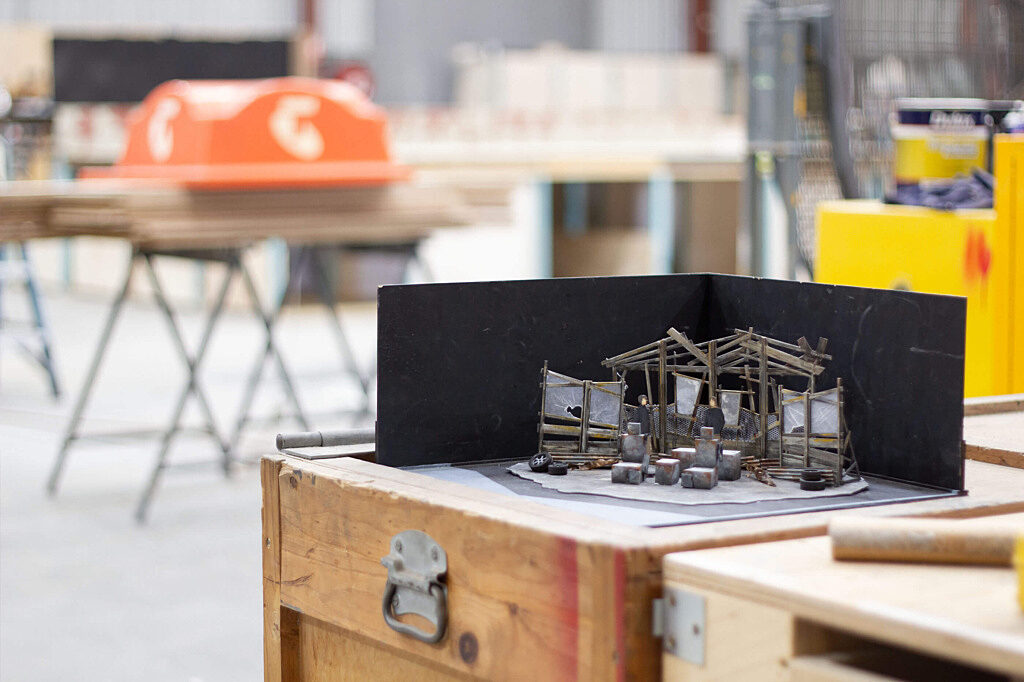Get a Glimpse of Andrew Bovell

Andrew Bovell (Things I Know to be True & When the Rain Stops Falling) answered some of our burning questions. Read our interview with him below.
What inspired you to write Speaking in Tongues? Were there particular experiences or ideas you were exploring at the time?
I wrote the play thirty years ago. I was trying to find a connection between innovative form and accessible story telling at the time. I was still discovering my voice as a writer. (I still am) I wanted to push the boundaries of what a play could be but I still wanted to tell a story that moved and involved people.
On a more personal level, I was ten years into my relationship with my wife, Eugenia and was asking some big questions about marriage and love and kids and responsibility. We’re still together so maybe I found the answers I needed to. And around this time, I started to see women’s shoes abandoned at the side of the road. Once I saw one, I started to see them everywhere. And I always wondered how the woman lost her shoe. It always felt slightly threatening to me, as if something bad had happened to her. The image of the lost shoe is central to the play.
The film Lantana brought your story to a huge audience. Did adapting the play for the screen change how you felt about it?
Cinema and theatre are very different. Each is its own beast with its own rules. Even though they share characters and story elements they feel like different works. Writing the film gave me an opportunity to rediscover the material but for a new medium. I didn’t just want to repeat myself. I wanted to discover new angles and ideas but within the same thematic world.
As a member of Black Swan's board, how does it feel to have your work staged by the company, and what does this production mean to you personally?
I feel very fond of Black Swan. My relationship with the company goes back to Andrew Ross’s time when he directed an early play of mine called After Dinner. Adam Mitchel then directed a stunning production of When the Rain Stops Falling during Kate Cherry’s tenure. And Kate Champion’s production of Things I Know to be True is among the best I have seen. So, there is a history there. I’m proud to be a member of the Board now and I admire the way Kate and Ian are leading the company to great places. It’s an exciting time to be a part of it. And it’s always been important to me to bring my work home to Perth. I guess as someone who grew up here, recognition of my work in my own town means even more.
Things I Know to Be True struck a real chord with audiences. Do you see connections between that play and Speaking in Tongues?
They feel like very different plays to me, each offering the audience a different experience. Perhaps critics or academics who study my work can see connections across the different plays, but each one feels unique to me. I have a fear of repeating myself or being known as a playwright who does a particular kind of play. And I guess, each play reflects where I am in life at the time I write it.
Your plays often explore love, loss, and the emotional grey areas of relationships. Why do you think those themes speak to people so strongly?
Because most of us experience those things, love and loss and most of us find ourselves trying to work out those grey areas in our relationships. They are pretty universal themes, I guess. I think most of my plays ask a simple question. “How do I make sense of the world I live in? How do I survive it?” That’s two questions.
Growing up in WA, do you feel like this place and its people have influenced your stories?
I carry the landscapes of my childhood and adolescence with me. The wheatbelt of my childhood and the Indian Ocean and Perth suburbs of my adolescence. There is a poetic resonance evident in my work that I draw from these places. I was surrounded by strong and stoic women and flawed men as I grew up. Those kind of characters continue to appear in my plays.
What do you hope audiences take away from Speaking in Tongues this time around? Has your perspective on the play changed over the years?
I love the fact that the play continues to be done and discovered by new generations. It’s very much a period piece now, capturing the way we lived in the 1990’s so I’m interested in what a contemporary audience makes of it. But it has a compelling psychological mystery at its heart and it’s a bit of a “who done it?” It asks its audience to be a detective… like so much of our streaming television now. And I think audiences enjoy that.
What’s next for you? Are there new stories or ideas you’re excited to explore?
I’m working on some interesting projects across TV, film and theatre. But what’s exciting me at the moment is a project I’m working on in Rome, where I’m creating a new play for eleven actors. It’s challenging to write for such a cast and an absolute pleasure to be able to work in Europe. I still love what I do.
When you’re not writing, how do you like to relax or recharge creatively?
I’m always writing, even when I’m not.
If you could give aspiring playwrights one piece of advice, what would it be?
I always encourage new writers to think about their own times, to think about what’s happening now, what’s important now, and what do they want to say about it. I encourage them to take risks, be brave and bold and funny and human. Put yourself on the line. Make it count. And always… always think of your audience.

